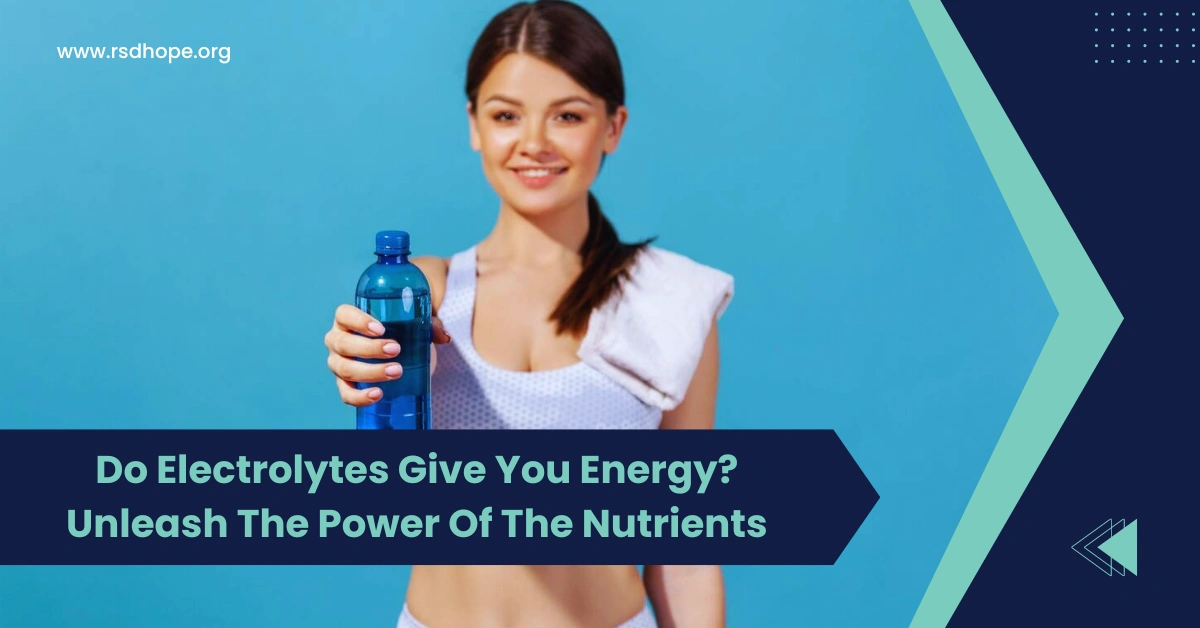Electrolytes are essential minerals that play a crucial role in keeping our bodies functioning properly. They help regulate fluid balance, muscle contractions, and nerve impulses. But do electrolytes actually give you energy? In this blog post, we’ll explore the relationship between electrolytes and energy levels, and how you can ensure you’re getting enough of these important nutrients.
Key Takeaways
- Electrolytes are essential for maintaining proper hydration and bodily functions.
- While electrolytes don’t directly provide energy, they support the processes that do.
- You can get electrolytes from a variety of food sources and sports drinks.
What Are Electrolytes?
Electrolytes are minerals that carry an electric charge when dissolved in water. The most common electrolytes in the human body are sodium, potassium, calcium, and magnesium. These minerals are crucial for maintaining proper fluid balance, muscle function, and nerve signaling.
Also Read: How To Add Electrolytes To Water? Revitalize Your Water
Do Electrolytes Give You Energy? How Do They Affect Energy Levels?
While electrolytes don’t directly provide energy, they support the bodily functions that do. Electrolytes help regulate hydration, which is essential for maintaining energy levels. When you’re dehydrated, your body has to work harder to perform basic functions, leaving you feeling tired and sluggish.
Electrolytes also play a key role in muscle function. When you exercise, you lose electrolytes through sweat. If these electrolytes aren’t replaced, you may experience muscle cramps, fatigue, and decreased performance. Keeping your electrolyte levels balanced can help you maintain optimal energy levels during physical activity.
Moreover, electrolytes support nerve signaling, which is crucial for proper brain function. When your electrolyte levels are imbalanced, you may experience brain fog, confusion, and difficulty concentrating. Maintaining proper electrolyte balance can help keep your mind sharp and focused.
Sources Of Electrolytes
You can get electrolytes from a variety of food sources. Fruits and vegetables, particularly bananas, spinach, and avocados, are rich in potassium. Dairy products, such as milk and yogurt, are good sources of calcium. Nuts, seeds, and leafy greens are also high in magnesium.
In addition to food sources, you can also replenish electrolytes through sports drinks. These beverages are specifically formulated to replace the electrolytes lost through sweat during intense exercise. However, it’s important to choose sports drinks wisely, as some may contain high amounts of sugar and calories.
Conclusion
While electrolytes don’t directly provide energy, they play a vital role in supporting the bodily functions that do. By maintaining proper hydration, muscle function, and nerve signaling, electrolytes help keep your energy levels optimal.
You can ensure you’re getting enough electrolytes by consuming a balanced diet rich in fruits, vegetables, dairy products, and whole grains. If you engage in intense physical activity, sports drinks can also be a helpful way to replenish lost electrolytes. By prioritizing electrolyte balance, you can support your overall health and well-being.
Read More: Can Dehydration Cause High Blood Pressure? Understanding The Connection
FAQs
A: Yes, a balanced diet that includes a variety of fruits, vegetables, dairy products, and whole grains can provide sufficient electrolytes for most people.
A: Sports drinks are most beneficial for individuals engaging in intense physical activity lasting longer than an hour, or in hot and humid conditions where sweat loss is significant.
A: While rare, consuming excessive amounts of electrolytes can lead to imbalances that may cause health problems. It’s important to follow recommended guidelines and consult with a healthcare professional if you have concerns.
A: Symptoms of electrolyte imbalance can include muscle cramps, fatigue, headaches, confusion, and irregular heartbeat. If you experience these symptoms, it’s important to consult with a healthcare professional.
Sources:
- U.S. National Library of Medicine: https://medlineplus.gov/fluidandelectrolytebalance.html

